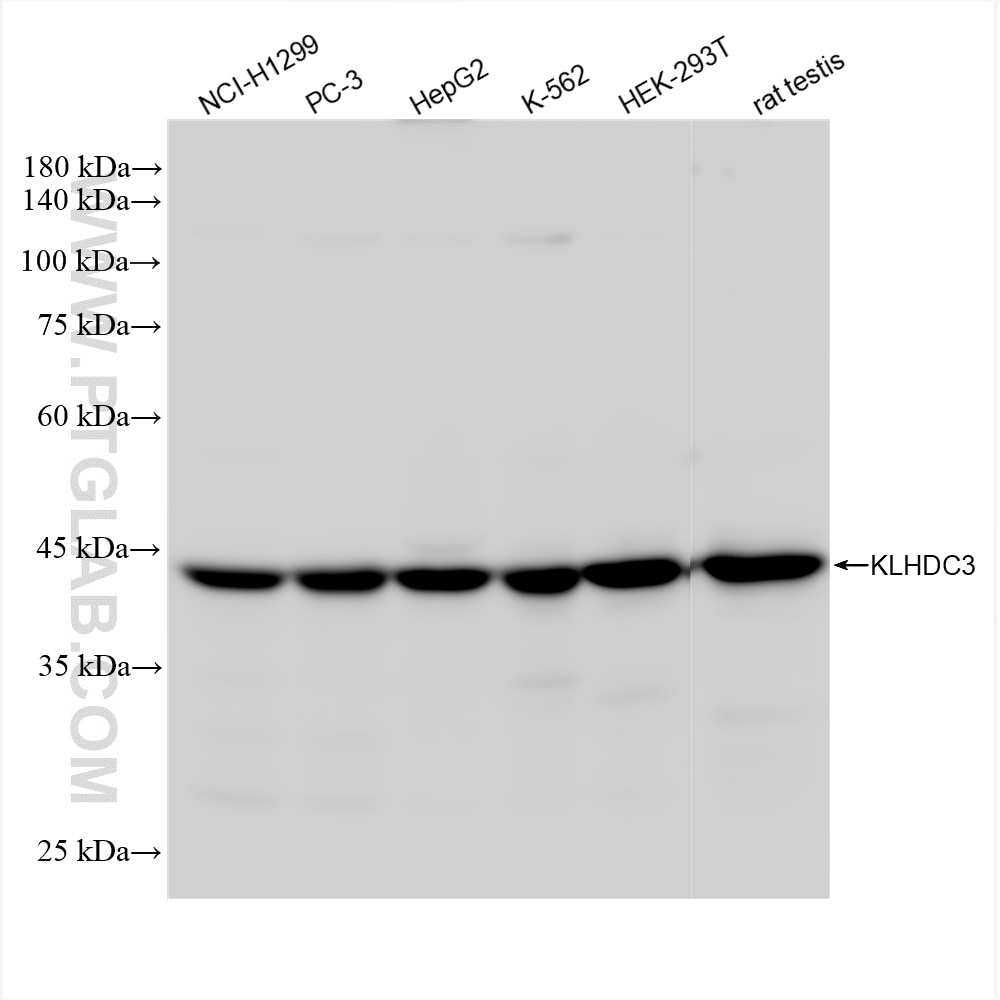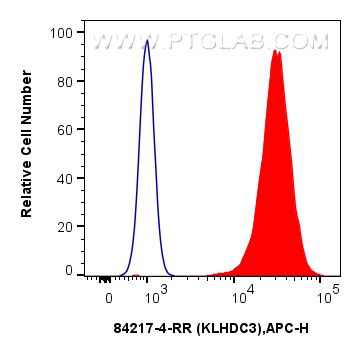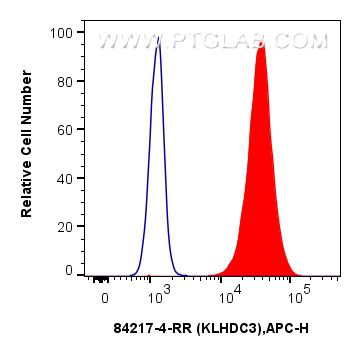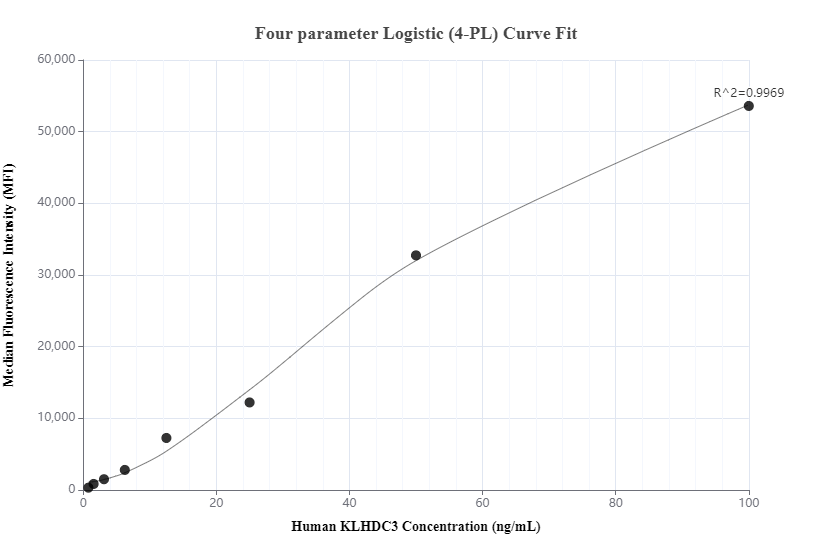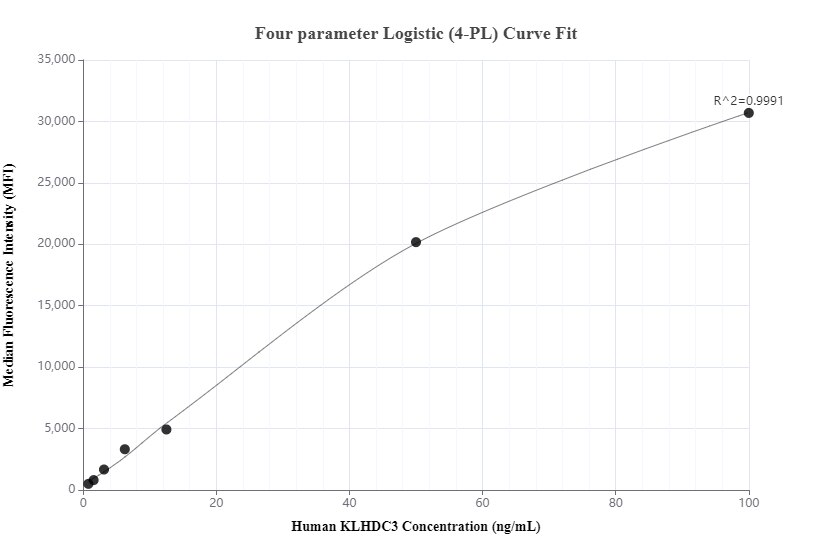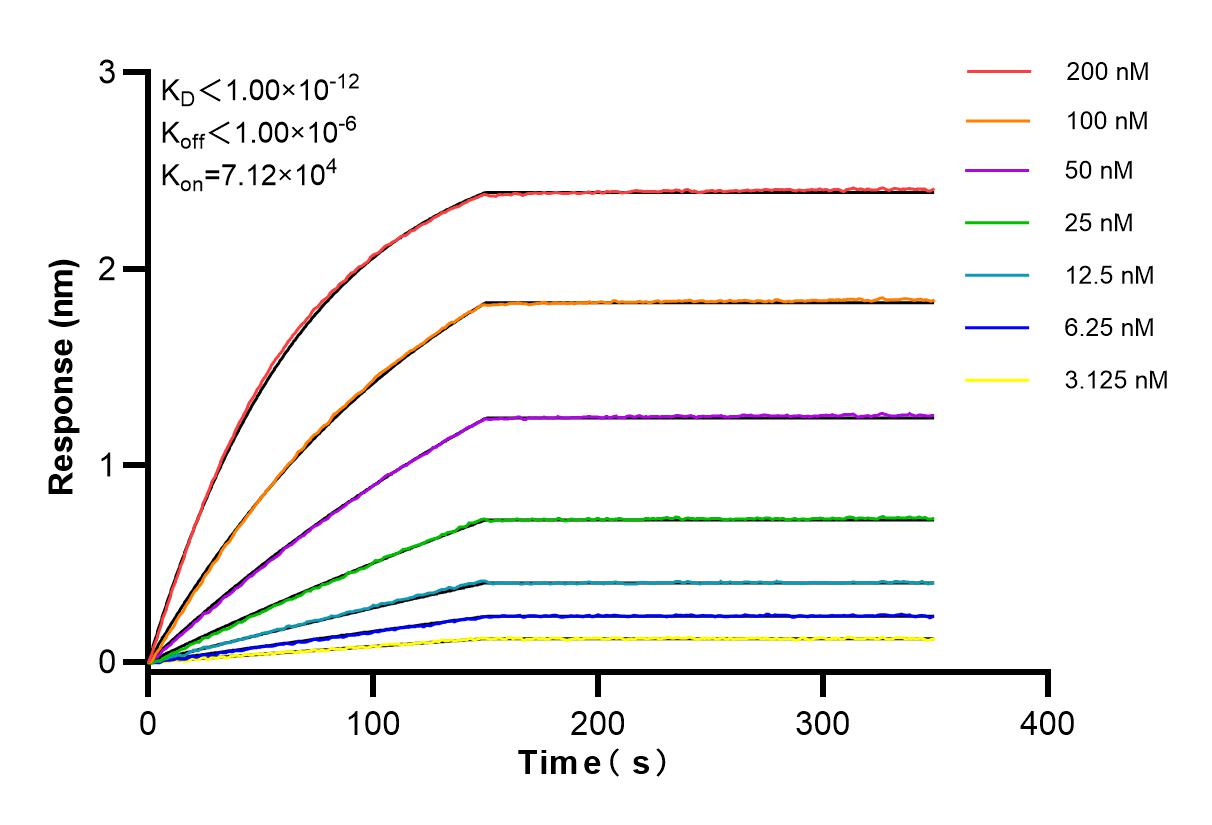KLHDC3 Rekombinanter Antikörper
KLHDC3 Rekombinant Antikörper für WB, FC (Intra), Cytometric bead array, Indirect ELISA
Wirt / Isotyp
Kaninchen / IgG
Getestete Reaktivität
human, Ratte
Anwendung
WB, FC (Intra), Cytometric bead array, Indirect ELISA
Konjugation
Unkonjugiert
CloneNo.
241475G5
Kat-Nr. : 84217-4-PBS
Synonyme
Geprüfte Anwendungen
Produktinformation
84217-4-PBS bindet in WB, FC (Intra), Cytometric bead array, Indirect ELISA KLHDC3 und zeigt Reaktivität mit human, Ratten
| Getestete Reaktivität | human, Ratte |
| Wirt / Isotyp | Kaninchen / IgG |
| Klonalität | Rekombinant |
| Typ | Antikörper |
| Immunogen | KLHDC3 fusion protein Ag4879 |
| Vollständiger Name | kelch domain containing 3 |
| Berechnetes Molekulargewicht | 382 aa, 43 kDa |
| Beobachtetes Molekulargewicht | 43 kDa |
| GenBank-Zugangsnummer | BC041793 |
| Gene symbol | KLHDC3 |
| Gene ID (NCBI) | 116138 |
| Konjugation | Unkonjugiert |
| Form | Liquid |
| Reinigungsmethode | Protein-A-Reinigung |
| Lagerungspuffer | PBS only |
| Lagerungsbedingungen | Store at -80°C. 20ul Größen enthalten 0,1% BSA. |
Hintergrundinformationen
The Kelch domain-containing protein 3 (KLHDC3), also designated PEAS, contains 5 Kelch repeats and may be involved in meiotic recombination process. The gene encoding KLHDC3 maps to chromosome 6, which contains around 1,200 genes within 170 million base pairs of sequence. Deletion of a portion of the q arm of chromosome 6 is associated with early onset intestinal cancer suggesting the presence of a cancer susceptibility locus. Porphyria cutanea tarda, Parkinson's disease, Stickler syndrome, 21-hydroxylase deficiency and maple syrup urine disease are also associated with genes on chromosome 6. KLHDC3 protein is mainly expressed in cytoplasm, also found in meiotic chromatin.
